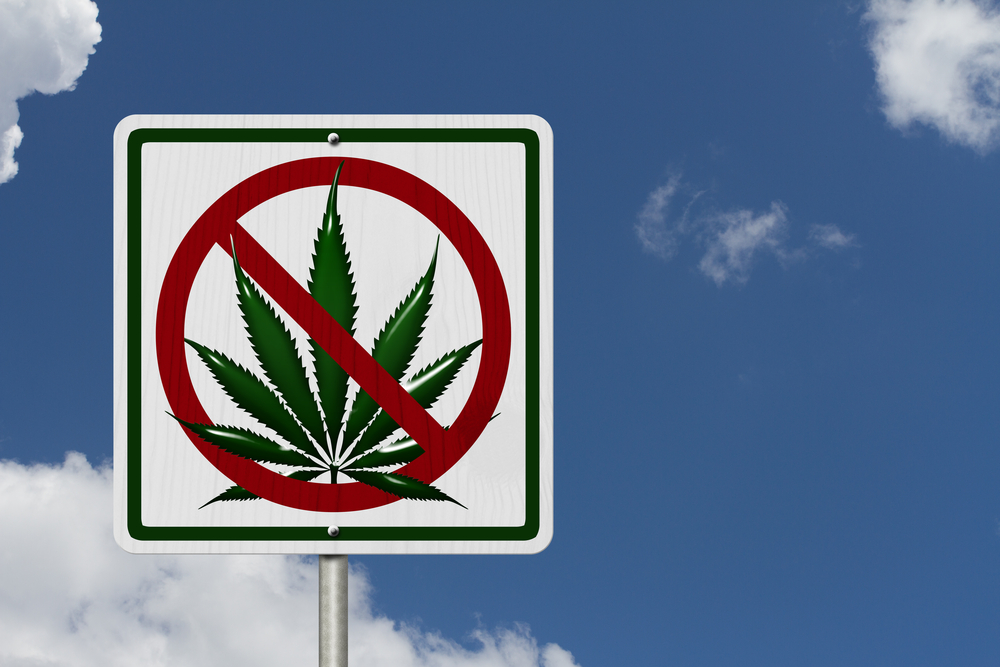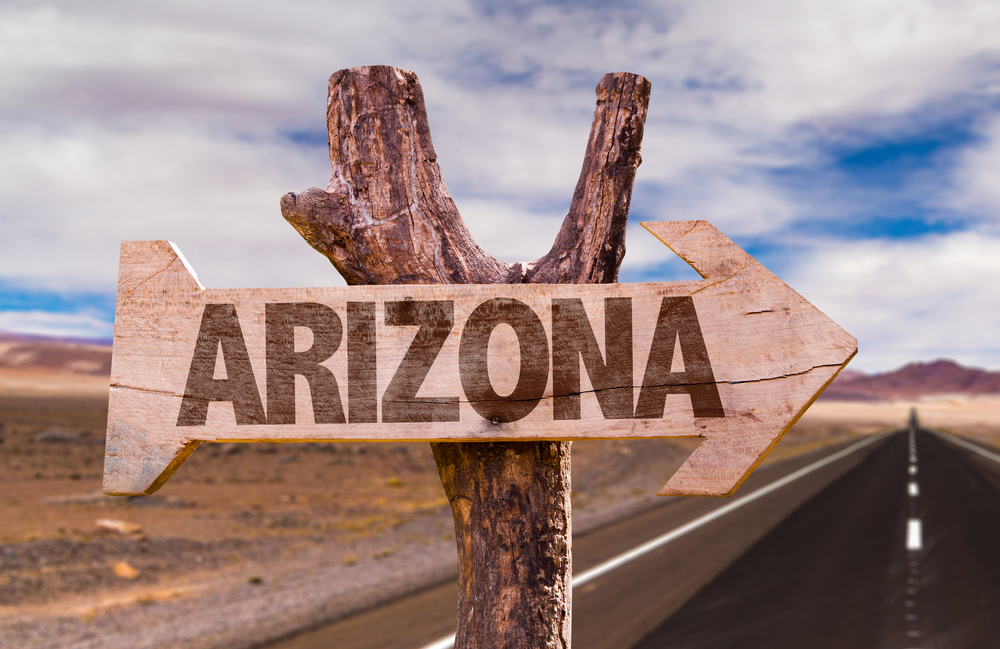
On November 3rd, voters in Arizona supported non-medical access to cannabis products in the state. Proposition 207 made Arizona the 13th state to legalize recreational cannabis use, with the support of more than 60% of ballots on election day. Previously Arizona residents won a tighter race to legalize medical cannabis in 2010.
One of the other beneficial parts of Proposition 207 determines that the cannabis excise tax proceeds will support specific social programs in the state. Essential community services and organizations that have been previously underfunded. Those social programs will be identified when the Arizona Secretary of State’s Office certifies the new legislation in December 2020.
But while people in Arizona who support the legalization of cannabis were celebrating, other voices in communities across the state were not. While many jurisdictions in AZ support medical cannabis for registered patients, they are opposed to recreational use sales and dispensaries. And they are quickly moving to ban adult-use sales and dispensaries from their community.
Scottsdale, Arizona, is the first community to move in that direction. And they have filed an outright ban against recreational dispensaries in their local jurisdiction. Is it bid to keep the number of retail dispensaries down? Or is it an attempt to restrict access to legalized adult-use cannabis in the city?

By November 30th, Arizona had certified the election results. Proposition 207 was ratified by voters and will allow Arizona residents twenty-one (21) years of age or older to purchase and legally possess marijuana.
If you live in Arizona, you will now be able to grow up to six plants at home for personal use. And you can possess up to one ounce of cannabis. It is illegal to consume marijuana in any public location, however, in Arizona.
Cardholder or not, any amount of cannabis involved with the operation of a motor vehicle, and you will face criminal charges. The state has also trained Drug Recognition Experts (DREs) who can conduct roadside sobriety tests.
The DREs can not only determine if an individual is impaired by a drug but can identify the category of medicine used. The penalties for DUI (driving under the influence) are severe in Arizona. Refusal to submit to a chemical test in Arizona will result in an immediate one-year driver’s license suspension. First-time offenders will face a minimum of 24 hours to ten days in jail.
If your stoned, stay home or call an UBER. Second-time offenses carry a minimum jail sentence of three months, fines and interlocking ignition devices are mandatory after conviction, even for first-time offenders.
One of the challenges that medical dispensaries will face once they become licensed for adult-use sales is maintaining product availability. In many states, like Illinois, after the legalization of adult-use cannabis, there was an unanticipated spike in demand. Increased sales were expected, but not predicted at the volume that places like Chicago saw. Consequently, Illinois ran into a problem of too much demand and not enough supply of quality cannabis products. For adult-use and also for patients with medical cards.
Arizona will need to include minimum inventory levels or reserve amounts specifically for medical cardholders or patients. That will help ensure that no patient experiences a barrier to accessing the medicinal supplies they need from their local dispensary.
Recreational dispensaries can be very busy. And crowded. Medical dispensaries that will be selling to adult-use customers will have to adjust policies. They will need to allow patients the same concierge services (and recommendations) they rely on. At the same time, dispensaries cope with increased product demand and consumer traffic at retail locations.

Just because adult-use (recreational) marijuana is now legal in Arizona doesn’t mean it is easy to find. You can’t even buy it yet. The state has had medical dispensaries in operation since December 6, 2012, but the Arizona Department of Health Services will not receive business applications until January. Many industry experts predict that the first adult-use product sales and non-medical dispensaries will not be available until April of 2021.
So, while adults over 21 years are pretty excited about the route to legal weed in Arizona, they will have to curb their enthusiasm for a few months. During that time, the state will figure out how quickly it can license existing dispensaries for recreational pot sales. And how many adult-use dispensary business licenses they will plan to issue statewide.
It is kind of like getting to your favorite theme park after waiting months to arrive and then seeing that your favorite ride is closed for repair. Talk about ‘lunchbox letdown.’ But residents in Arizona know that there will be (at the very least) quality cannabis products available through medical dispensaries come April. While the adult-use dispensaries and multi-state operators are setting up shop.
Meanwhile, dispensaries have already started lining up. Medical dispensaries that are already licensed will be the first to provide recreational cannabis sales. This means that medical dispensaries will also have to set limits on how much cannabis they sell. This will ensure that medical cardholders will not face shortages in product availability.
Proposition 207 will also allow for max expungement. This will be a case by case process where any Arizona resident who has a minor and non-violent cannabis-related charge can petition. If they receive approval, the record of their misdemeanor charge will be expunged or permanently removed from the public record.
It is not uncommon for states to include decriminalization and expungement legislation when marijuana is decriminalized. Is it fair for someone to suffer the lifelong consequences of a criminal record when the state eventually moved to decriminalize all aspects of personal use? No. This not only means a clean slate, but it also presents the opportunity to find a new career within the cannabis industry.
People who were convicted for personal use amounts are prohibited from applying for federal student loans. They can’t get help to fund college. A criminal charge also means losing the right to apply for and receive social assistance. That includes subsidized public housing and the Supplemental Nutrition Assistance Program (SNAP).
Prosecutors can, however, petition against requests to expunge records. Some regions like the Maricopa County Attorney’s Office have indicated that it will immediately drop all pending cannabis-related charges. And filed charges, provided they are non-violent. Offenses not related to sale, illegal cultivation, or distribution.
The scope of decriminalization and expungement help repair access to education, social supports, and employment opportunities. Significant advantages that can help families out of poverty. Particularly people of color (POC) who are disproportionately targeted by law enforcement.
According to a report from Cronkite News (Arizona PBS), there is a planned 16% excise tax included in Proposition 207. The revenues generated from the excise tax are planned to support colleges and mental health support programs. And maternal mortality programs, while funding increased education for resources to combat impaired driving.
Arizona currently has a retail sales tax rate of 9%. That means all adult-use cannabis purchases will be taxed at a rate of 25%. Communities have the right to tack on a variable tax rate for local sales. The average sales tax paid for non-medical marijuana will be anywhere from 20% to 25%. Regulators are aware that a high tax rate will harm the adult-use (recreational) sales. And slow down the shift from the Black-Market to the regulated and legalized one.
In other words, if they jack up the tax’s consumers will continue to purchase unregulated cannabis products from illegal and unlicensed sources. And Arizona (like many other states) wants to squeeze out the criminal influence and cartels. The tax rate may change in final legislative drafts.
Featured Image: Karenr | Deposit Photos
No Information on MarijuanaDoctors.Com should be used to diagnose, treat, prevent or cure any disease or condition. You can view our Full Disclaimer here.